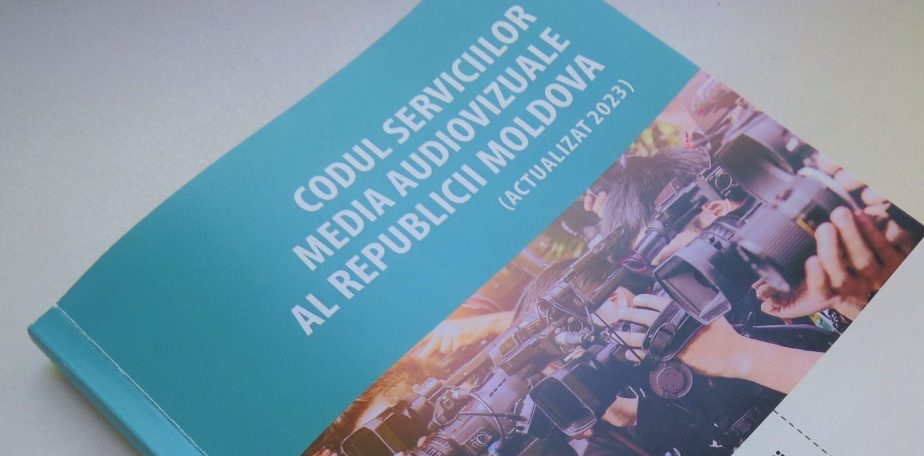News on audiovisual legislation. Changes brought by amendments to the Audiovisual Media Services Code

A draft law making several changes to the audiovisual legislation was adopted on July 10, in the last sitting of the current legislature. Among other things, it brought new rules for video-sharing platforms, revised procedures for appointing members of the Broadcasting Council (BC), and updated the sanctions regime for TV and radio stations. While some media representatives consider this initiative a necessary step to strengthen the audiovisual framework, others warn of the risk of abuse and possible censorship online.
The draft law amending the Audiovisual Media Services Code (AMSC), which is still to be promulgated and published in the Official Gazette in order to enter into force, brings changes related to the regulation of video-sharing platforms (VSPs); establishing the jurisdiction of audiovisual media service providers; protecting minors from harmful content, both in linear audiovisual media services and on VSPs; increasing the protection of journalistic sources; amending the sanctions regime by introducing progressive sanctions: from warnings to license withdrawal, and so on.
Change in the procedures for the selection of BC members and of the TRM management, a backlog from 2021
Some amendments will change the rules regarding the appointment of members of the Broadcasting Council (BC) and the management of the public provider Teleradio Moldova (TRM). In its Press Lawyer section, the Independent Journalism Center points out the changes in the mechanism of selecting the members of the BC, the general director of the TRM, as well as the members of the supervisory body of the public provider.
The BC Vice-President Aneta Gonța said in the Punctul pe Azi program on TVR Moldova that these changes are based on the appeals of the Committee of Ministers of the Council of Europe (CoE) addressed to the authorities of Moldova. The CoE called for a review “without delay” of the provisions of the audiovisual legislation that brought the public media service provider back under parliamentary control in autumn 2021 and intervened over the mechanisms that guaranteed the independence of the BC and the TRM.
In a Facebook post, the MP Adela Răileanu from the parliamentary faction of the Bloc of Communists and Socialists criticized the fact that the ruling PAS party “at the end of its term suddenly ‘remembered’ that it has some commitments to the EU.” She noted that the government does not act to “fix what it broke in 2021”, but to legislate “mechanisms that would guarantee its political influence over the BC and the TRM.”
Video-sharing platforms. New responsibilities for the protection of the public and minors
The amendments also include updating the existing provisions on VSPs, but also introducing new regulations on the protection of minors and combating of hate speech by forcing VSPs to introduce systems for reporting harmful content, classifying content, and verifying age.
The draft law proposes new definitions for the concepts of VSP provider, user-generated video, and VSP service, terms already existing in the Moldovan legislation. The new definitions are taken from the EU’s Audiovisual Media Services Directive. The term VSP means online services that offer the general public the opportunity to access videos – either produced by professionals or generated by users.
The document also takes over from the EU Digital Services Act the concept of trusted flagger, which refers to people who have specific skills in detecting, identifying, and notifying dangerous content. Notifications from these individuals and/or entities should be treated as a priority by video-sharing platforms. The amendments also transpose (according to the Audiovisual Media Services Directive) the criteria for establishing jurisdiction, i.e. the identification of video-sharing platforms to be subject to the regulations of the Republic of Moldova.
The authors of the amendments introduce a new version of Article 11 of the AMSC, which refers to illegal content, such as content that jeopardizes national security, incites violent overthrow of the constitutional order of the State, incites military aggression or armed conflict, or content the dissemination of which constitutes an illegal activity, including public provocation to commit a terrorist crime, crimes related to child pornography and crimes of a racist and xenophobic nature, etc.
The draft law also implies the introduction of a new chapter dedicated only to VSP services, taken from the Audiovisual Media Services Directive. It establishes the general obligation of VSP providers to protect minors against content that may affect their development, as well as the general public against illegal content. And in order to ensure the protection of minors and the public, VSP providers must take appropriate measures to prevent the viewing of harmful content by minors; establish mechanisms to allow platform users to report or flag illegal content or provide parental control systems under the control of end users; etc. The draft law also requires the VSPs to set up their own mechanism for challenging decisions by which content has been restricted.
Disinformation – a new definition
Currently, the law defines disinformation as “the intentional dissemination, by any means, in the public space, of information, the false or misleading nature of which can be verified and which is likely to harm national security.”
The amendments provide for a different wording. The legislators proposed to define disinformation as “verifiably false or misleading information that is created, presented and disseminated for economic gain or to deliberately mislead the public and which may cause public harm. Public harm includes threats to political processes, democratic principles and values, and policy-making processes, as well as threats to public goods, the protection of citizens’ health, the environment or security.” At the same time, the authors of the amendments specified that “error reporting, satire and parody, or partisan news and comments clearly identified as such” cannot be qualified as disinformation.
According to para. 67 of the Opinion of the Venice Commission on the package of amendments concerned, the proposed definition is “in line with international standards.”
Audience measurement
The law introduces transparency and impartiality requirements in measuring the audiences of TV and radio stations. Thus, the selection of organizations that measure TV/radio ratings must be made on the basis of a transparent methodology, agreed by the market and the regulator, so that audience data could be credible and could not be manipulated. Measurement methodologies are to be published and subject to independent verification, ensuring a common standard for all broadcasters.
The draft law will also introduce clear criteria for determining jurisdiction for media service providers and VSP providers, including non-EU and third-country providers. The amendments introduce novelties and detailed guarantees aimed at protecting journalistic sources. The draft law introduces a new formula for sanctioning and individualizing penalties for audiovisual media service providers. The new mechanism provides for progressive penalties: from warnings to license withdrawal. Fines will vary between MDL 1,000 and MDL 200,000.



